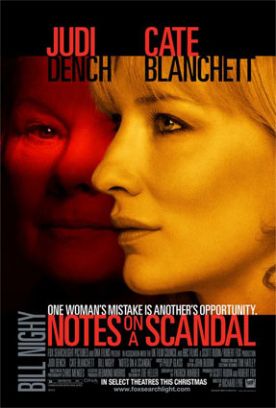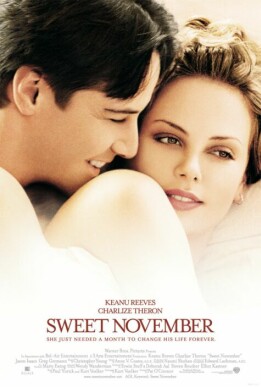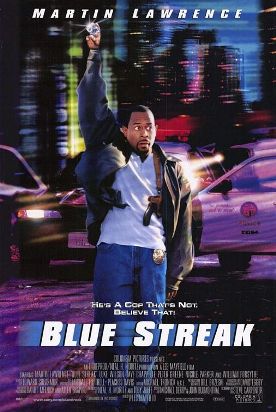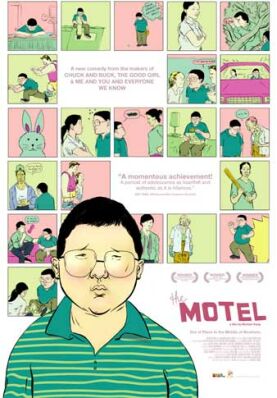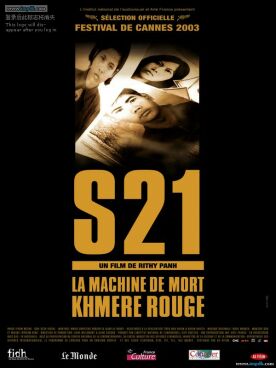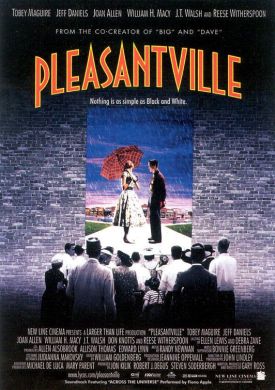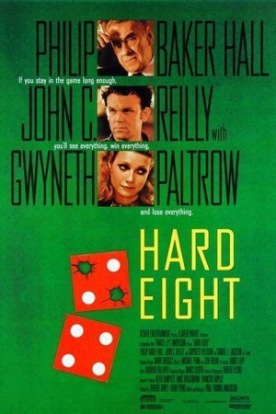Notes on a Scandal
Normally, I don’t have much interest in the ways in which movies differ from the novels, plays, memoirs etc. on which they are based. A movie should be judged on its own terms and has no obligation at all, in my view, to be faithful to its source. It’s got to change things no matter what, and it seems to me pointless simply to count the number of things it has changed. Richard Eyre’s Notes on a Scandal is one of the few movies which demand some comparison with its fictional counterpart, in this case the novel What Was She Thinking? Notes on a Scandal by Zoe Heller. Unfortunately, the point where comparison could be most instructive is the ending, which is radically different in the book from what you will see in the movie but which the movie critic’s well-understood code of conduct forbids me to reveal.
What I can say, I think, is that your answer to the question of whether one of its two main characters, Barbara Covett, is a psychopath or just a very bad woman — or, perhaps, both or neither — is likely to be determined by whether you are talking of the Barbara of the novel or of the movie. And the question of what to make of Barbara is the central problem of the whole enterprise. Both novel and film are well-made and both seek to humanize her, making her rather disturbingly likable in spite of the fact that she does some despicable things. But they take quite different routes to the same destination.
The novel takes the form of Barbara’s diary, thus inviting our sympathy for her on account of the intimacy of our acquaintance with her interior world. It is a good illustration of the French proverb that to understand all is to forgive all. It also tells the story of the scandal in retrospect and more as a part of Barbara’s life story. But the film can’t devote so much time to Barbara’s thoughts or stick so frighteningly to her point of view. It preserves some of the diary in the form of her narrative voiceovers, as a plot device and as another indication of her obsessive personality, but its point of view is not only hers. Also it tells the story going forward, from beginning to end, and over a shorter period. All its humanizing of Barbara comes out of the performance of Dame Judi Dench. And what a performance it is! Even so excellent an actress as Cate Blanchett in the other main role sometimes seems in danger of being marginalized.
The latter plays Sheba Hart, an art teacher in an inferior London comprehensive school who, though apparently happily married to the older Richard (Bill Nighy) and the mother of two children, one of them handicapped, has an affair with a 15-year-old pupil (Andrew Simpson). When Barbara finds out about it she uses the information subtly to blackmail Sheba. What she wants, however, is not money but friendship. Or sex, if you prefer. Both novel and film leave the question of the sexual nature of Barbara’s interest in Sheba more or less up in the air, along with the question of her mental health to which it is presumably related, though the film more than the novel hints that she is a lesbian “in denial,” as they say, of her sexuality. In both, however, it is obvious that she wants something more than a girlfriend and a confidante. Now in her sixties, Barbara is terrified of growing old alone and dreams of breaking up Sheba’s family in order to get her as a “companion” for herself.
When Sheba confides in her, she sees at once that she has been given the means to bring this about. All she has to do is betray her friend’s trust — which the law and professional ethics demand she do anyway — but in such a way that Sheba doesn’t find out she’s done it. The Barbara of the novel is a much more Machiavellian and impressive character. In an odd way we are more sympathetic to her because she understands so well what she is doing, whereas Dame Judi’s Barbara is a little more obviously unhinged and so inclined to overplay her hand, making mistakes that her counterpart does not. This impression may be partly owing to the long and apparently rational self-justifications of the diary-novel which are not available — or not so available — to the more bitter, less self-contained movie-Barbara.
In the novel, for example, but not the movie she expresses remorse for her betrayal, though in the context her contrition looks like part of the elaborately contrived self-justificatory performance that the diary has become. In both the novel and the movie, the scandal of the title is incidental. Though utterly devastating to Sheba, it is for Barbara, who acts as our eyes and ears, merely a means to an end — and the only means possible for her ends. Only with an explosion of this magnitude can she hope to dislodge Sheba from her family. Yet Patrick Marber’s screenplay imagines a very different Barbara from Zoe Heller’s. His Barbara — and Dame Judi’s — does most of the same things as her prototype, but the movie- Barbara seems to me to want one thing even more than she wants companionship, which is to have her pessimistic view of the world confirmed.
Beneath her self-pity, we realize, she is above all fiendishly proud of her own discernment of the evils in others that they take such pains to conceal. And they give her a kind of permission for the evil in herself. This is a more satisfying — and perhaps more pat — moral exemplum than anything Zoe Heller’s dark vision has to offer. Fans of the novel may resent the change in the ending as having been dictated by commercial considerations, but I wonder if it isn’t also, in some ways, truer to life?
Discover more from James Bowman
Subscribe to get the latest posts to your email.

